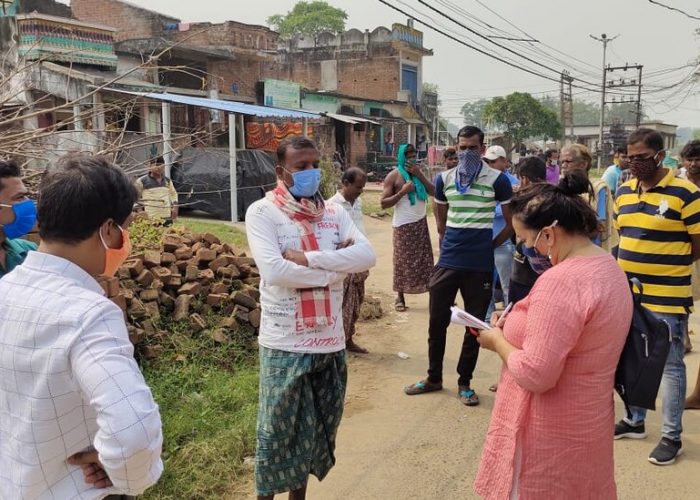In August, my father, whos diabetic, contracted the virus. I had to rush him in an ambulance to New Delhi, because there was a shortage of beds in the few good hospitals for coronavirus patients in his city, Lucknow. He barely made it through. He lost nearly all of his hearing, and he experienced severe degeneration of his eyesight.
While my father recuperated, I continued reporting on the virus trains. In the Ganjam district, a village on the east coast of India, I came across the story of Prafulla Behera, 39, a migrant who had left Ganjam over a decade earlier to find work at a factory in Surat, in western India. He died a couple of days after arriving in Ganjam by train. Six of the seven people traveling with him had tested positive for the virus, including his brother Rabindra. In his suitcase, Prafulla had 13 dresses for his four daughters.
A short distance from his village, I learned about a primary-school teacher, Simanchal Satapathy, 26, who had started working at a quarantine center, caring for infected migrants who had traveled home on the trains. He contracted the virus and died at a hospital. The grief broke his parents, who both hanged themselves after hearing of his death.
While working on those stories, I went to my hotel room in a small town next to the sea, near Prafullas and Simanchals villages, and I called my family back home. My husband said that his father was showing symptoms of Covid-19. So was my husband. And my son.
In the span of a week, a number of my family members, including my sister-in-law and niece, had tested positive for the virus. After I arrived home, I had to take my husband, son and mother-in-law to the hospital.read more
A Reporter Experiences the Anguish of Covid on Two Fronts


